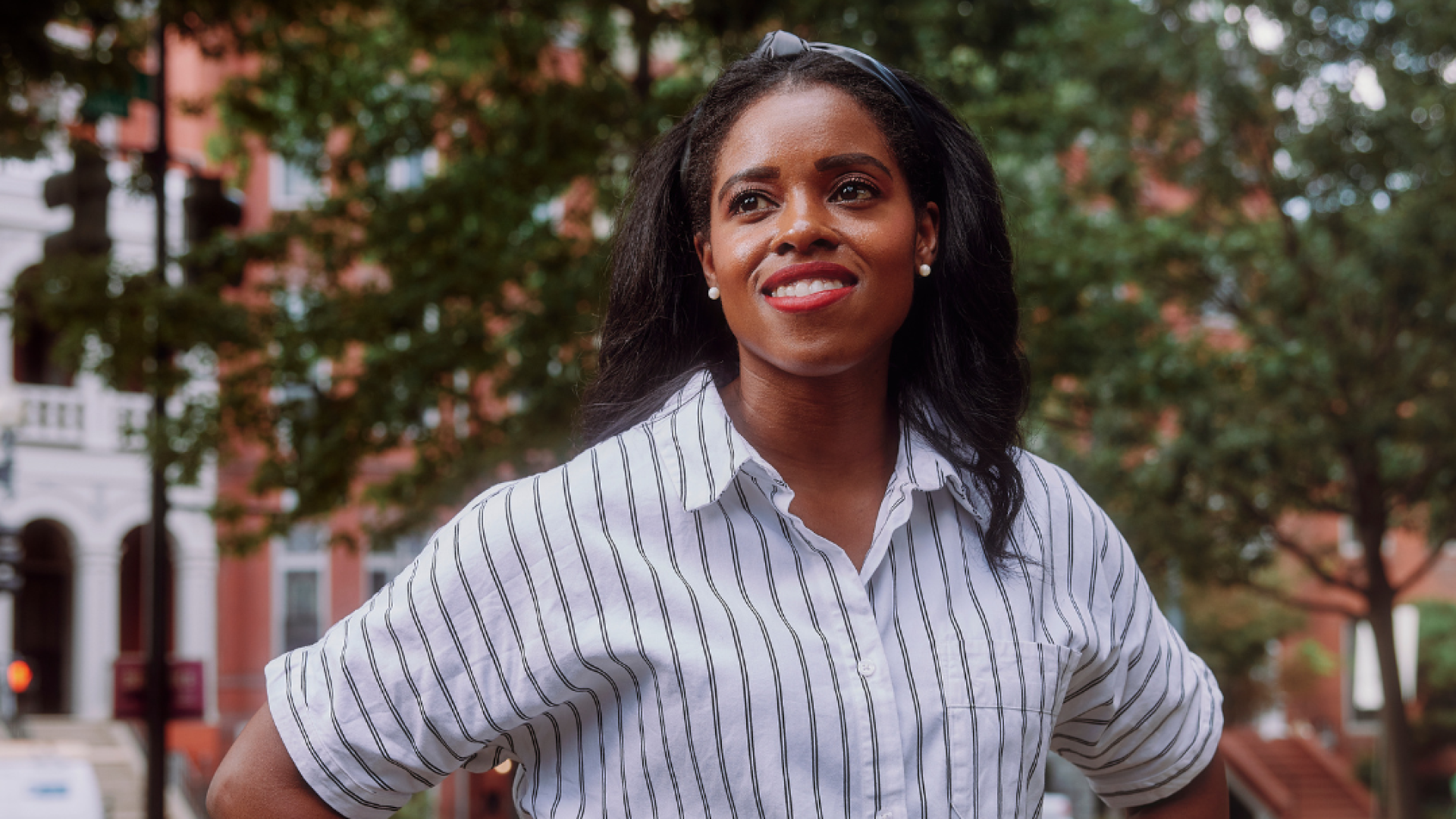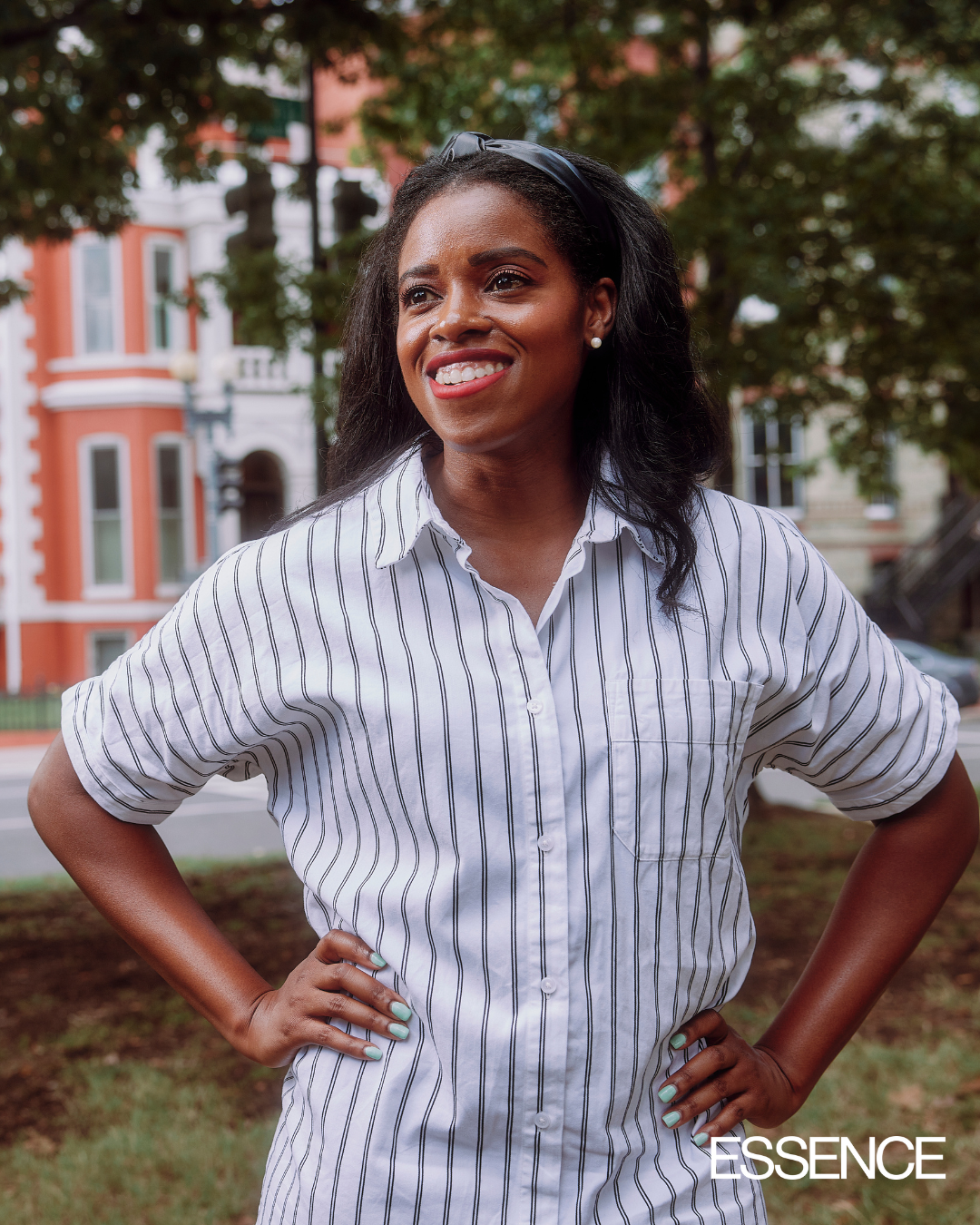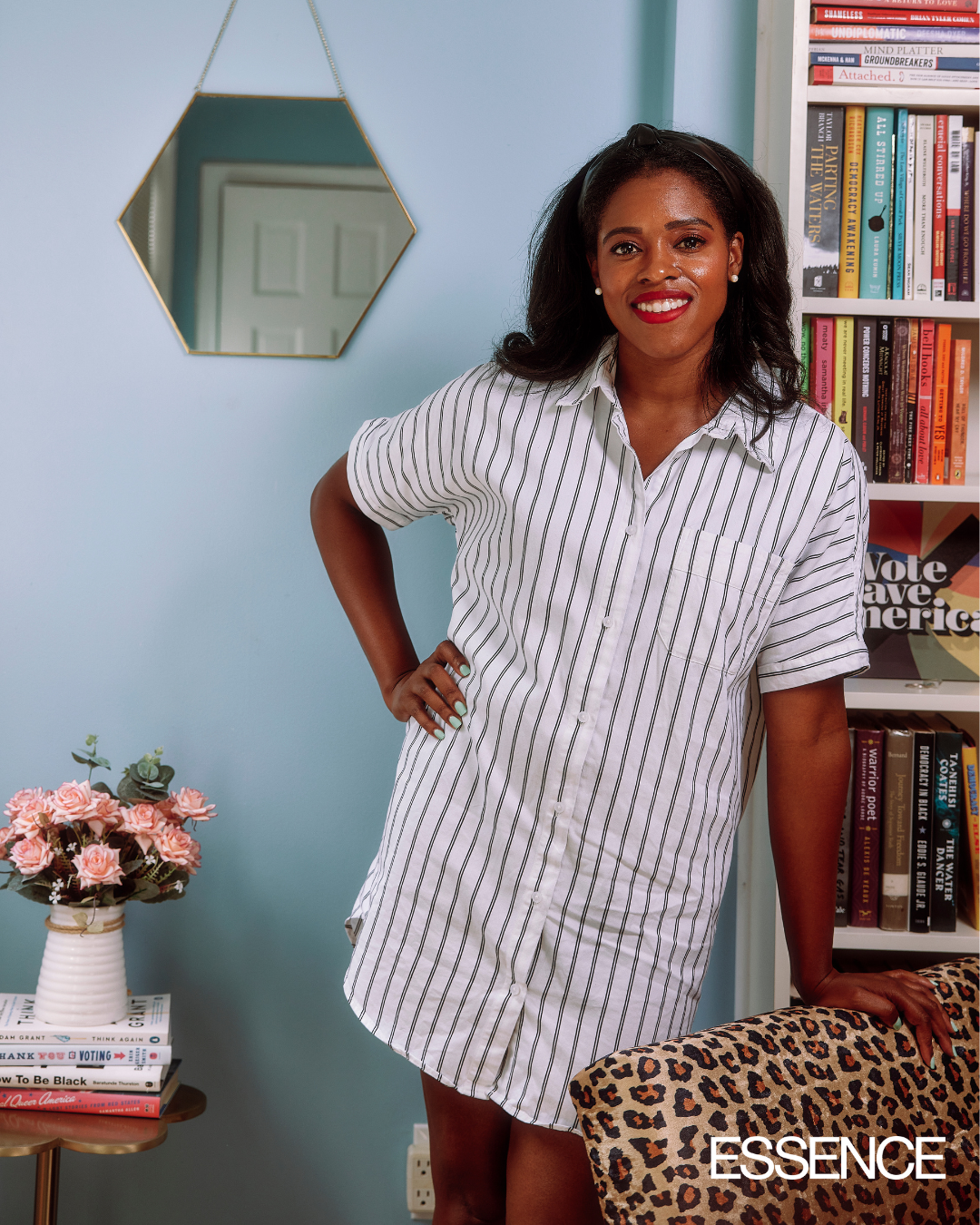
Growing up poor in rural Granville County, North Carolina, Shaniqua McClendon knew she would need to make money to survive. But a college career at University of North Carolina at Chapel Hill, bookended by seeing the destruction caused by Hurricane Katrina during her freshman year and the election of President Barack Obama in her senior year, forever altered her course.
“[Hurricane Katrina] was the first time I could really remember starting to understand the role that government plays in people’s lives,” McClendon says. “And this was an instance when they were not playing a good role in the lives of Black people. I started to see that growing up poor was more so a set of decisions that people in elected office had made—about what we would have access to, and how the country and our world would work. We were a byproduct of that, and that’s what got me interested in politics. I truly believe that policy is a way to improve people’s lives.”
A White House internship during the Obama presidency, followed by a job offer with U.S. Senator Kay Hagan, propelled McClendon to leave home for Washington, D.C. She also served as legislative director for Congresswoman Alma S. Adams; in that job, she led the charge to spearhead the creation of the inaugural Congressional Bipartisan HBCU Caucus.

McClendon continued to garner accolades. She earned honors in graduate school at Harvard’s Kennedy School of Government, as the recipient of the Robert F. Kennedy Award for Excellence in Service. “My capstone project was about how we get more pro-voter policies in North Carolina,” McClendon explains. “Because North Carolina used to be a state that had voter policies encouraging people to vote—but after the Shelby County v. Holder decision, we saw North Carolina do a complete 180 and start being a voter-suppression state.”
Her mission remained the same following graduation, she says, emphasizing an ongoing goal she has for her work: “North Carolina has always been a state where I’ve made sure that we were investing.”
Currently McClendon is in her sixth year as Vice President of Political Strategy for Crooked Media—where she created the Vote Save America program, raising in excess of $57 million and activating more than 600,000 voters, volunteers and grassroots donors nationwide. Her approach leans toward finding a local organization to be a partner in this effort. “They are here year-round, as opposed to just focused on getting one person elected,” she points out. “It’s going to be really rare that you agree with everything that one elected official or politician or candidate stands for—but if you work with an organization around an issue you care about, it’s going to improve your whole community, beyond just one person getting elected.
“Because if that person you help get elected through that organization disappoints you in a major way, you and the organization can work to replace them,” she adds. “It’s a lot better to be tied to an organization that is there year-round, and stay involved in the community—versus only when it’s time to elect a candidate.”
McClendon’s passion for her home state is abundantly clear—North Carolina is a constant refrain. “I always think it’s an important state that we should be focused on—but this year, some other people agree with me,” she wryly remarks. “I have always made sure that if I was ever in a position to help North Carolina, I would.
“For a long time, I felt a tremendous amount of guilt about leaving home, a place I love and want more than anything to be better,” McClendon continues. “I could’ve stayed and put my talents to work there. But in the last few years, I’ve realized you don’t have to be home to pour into the place you call home. My two jobs on Capitol Hill were working for North Carolina members of Congress. And in my current role, I’ve directed a lot of resources and attention to my home state. And I’ll keep doing that.”

Moreover, McClendon remains committed to the cause of advancing the rights of Black women. “Something that has become clear to me,” she says, “is that Black women are at the bottom in terms of privilege in this country. We are the only ones who seem to take our needs seriously—and in a way that is working toward real change and improvement in our lives, and not just scoring political points or performative allyship.”
Bottom line: “We need to elect more Black women,” she states. “By having Black women in these spaces, we will see a lot more attention to the issues that impact us.” After all, McClendon notes, “Black women are always going to fight the hardest for everyone, not just people who look like them.”
As she looks back, McClendon recalls what her accomplishments have meant to her as a Black woman with an identifiably Black name. Even before the studies around name bias became pervasive, she was acutely aware of her good luck. “I feel really fortunate that I haven’t been burdened by a lot of the stereotypes associated with my name,” she says.
Of course, not everyone received the memo. On the campaign trail, former President Trump’s ally Laura Loomer made a specific callout, saying, “I’m talking about Kamala Harris, Letitia James and Fani Willis…all of the meritless DEI Shaniquas talk the same way.”
In response to Loomer’s comments, McClendon reflects, “I think about Kamala Harris running, and the deliberateness with which people are mispronouncing her name, or not even trying to make an effort to say her name correctly.” McClendon believes these are subversive efforts to embed the stereotypes of Black women, particularly those with ethnic names, as unqualified and undeserving of accolades.
“There’s no one named Shaniqua with political prominence, for her to even bring that name into it,” McClendon points out. “There’s just this cultural association with what the name Shaniqua means, and it’s often been a punch line.” Not any more.
